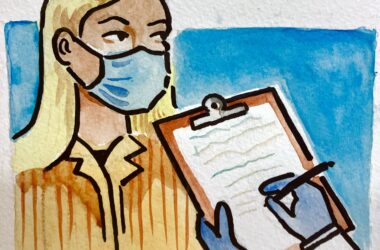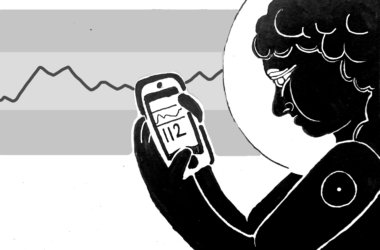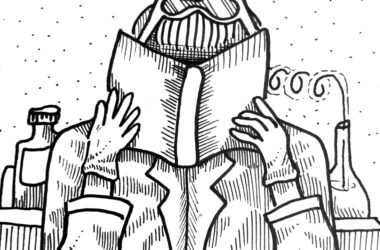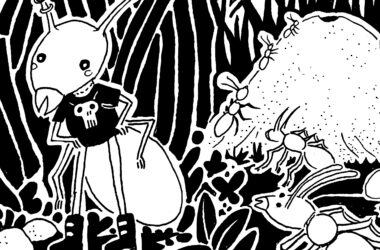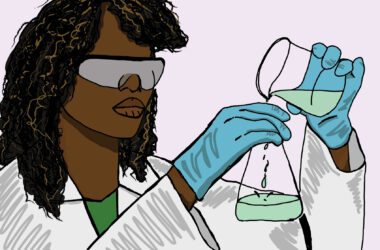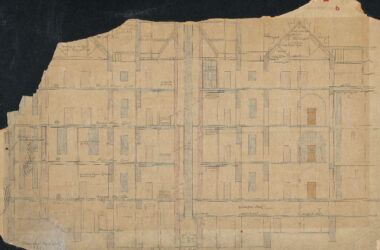We often take many aspects of our lives for granted. Among these are access to healthcare, a place to stay permanently, and a safe and stable home, which are all critical for a healthy and prosperous life. However, many people lack access to these necessities. Overlooking the improvement plan for[Read More…]
Science & Technology
The latest in science and technology.
Patient-centric progress: Advancements in technologies for type 1 diabetes
Living with diabetes goes beyond managing its symptoms. It involves grappling with social stigma, the necessity of a continuous supply of insulin, the lurking fear of hypoglycemia, and the financial burden of disease management in failing healthcare systems. Recent advancements in diabetes technology aim to assist with insulin adjustment and[Read More…]
SciTech Reviews: ‘Superior: The Return of Race Science’
Science has helped society make sense of the natural world and all of its intricacies. Advancements in medicine, technology, and mathematics have all led to improvements in human welfare. At the same time, science can be applied unequally, benefiting those of a specific race or class, in ways that distort[Read More…]
Behind closed doors: How family physicians struggle against social inequities
At their best, family physicians in Canada stand as critical frontline defenders for vulnerable patient populations. In a recent study titled, “You are the only other person in the world that knows that about me: Family physician stories of proximity to patients experiencing social inequity,” 20 Ontario-based family physicians shared[Read More…]
Upping the ante: The latest research on communication in ant societies
On Feb. 29, McGill’s Department of Biology hosted a lecture on ant societies, led by Daniel Kronauer, an associate professor at Rockefeller University and a leading researcher in the field of ant evolution, genetics, and neuroscience. “In my lab […] we try to understand how ant societies have evolved, how[Read More…]
Black joy: A key to Black maternal health and well-being
On Feb. 21, McGill’s Equity, Diversity, Inclusion and Anti-Racism Standing Committee (EDIAR-SC) and the Department of Global and Public Health co-organized an engaging Black History Month event titled “Joy, Liberation, and Vitality in Black Maternal Health.” This event was led by Ijeoma Nnodim Opara, a prominent Detroit-based physician and global[Read More…]
Black History Month Blood Drive calls attention to a more diverse blood supply
Every February, people across Canada participate in Black History Month events and festivities that celebrate the contributions and accomplishments of Black people in Canada. “It is important to acknowledge the experiences and contributions of Black people, especially considering the reality of anti-Blackness in society. So having this small opportunity in[Read More…]
Type 2 diabetes: A cellular miscommunication issue?
On Feb. 22, the Research Institute of the McGill University Health Centre (RI-MUHC) presented a lecture from members of the RI-MUHC community, as part of their ongoing Distinguished Professors Lecture Series. This month’s distinguished professor was Guy Rutter, a professor of Medicine at the University of Montreal and researcher specializing[Read More…]
“Defying time and season:” Black McGill scientists through history
The history of science and technology is still reckoning with the contributions of Black researchers. White supremacy has deployed the sciences, and their ideal of objectivity, to dehumanize Black people, experiment on them, and legitimize slavery, colonialism, and dispossession. With the fights for medical and environmental justice still urgent and[Read More…]
Searching for sustainable heating methods in McGill’s basements
With the advent of sustainable architecture, complex and innovative techniques for increasing energy efficiency have proliferated. But what if the key to this puzzle lies in the basements of 19th-century Canadian institutional buildings, built to resist the extreme cold of Canadian winters prior to the widespread adoption of electricity? In[Read More…]
